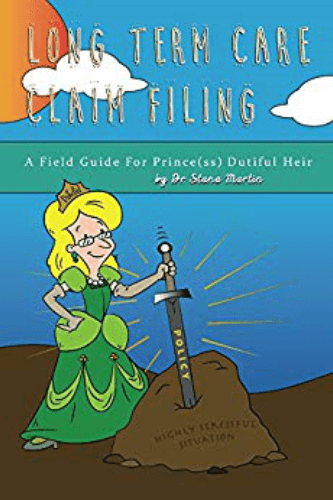As you may have learned by now, not all long term care policies operate the same way.
Here are just a few of the distinctions:
• Hybrid v Traditional (CLICK HERE to read on this)
• Critical Illness (101g) v True long term care policies(7702b). CLICK HERE to read on this
• Cash v Reimbursement…continue on to read on this…
The vast majority of policies in the market today are reimbursement policies. This means at the point of claim, you will get a bill, pay the bill and then submit the bill to the insurance company. They process the invoice and issue out payment reimbursing you for this loss. This means the insurance company is always in arears on payments – behind that is. In fact they can be up to 1 to 2 months behind depending on how quickly you get invoices submitted and how rapidly they process payments to you.
The other kind of policy you may find – and they are more rare – is a cash policy (also known as “indemnity” in insurance lingo). This type of policy does not require the submission of invoices. Each month, they simply send out a check or direct deposit money to your account. After that, cash is king: you can pay anything you need or want to with the money, including non-licensed, informal or family care givers.
At first blush, you might wonder why anyone would want a reimbursement policy. Cash, it seems, is so much simpler with more flexibility of use. Well…that is true to a point.
Both policies will require submission of documents to prove claim eligibility. Cash/indemnity policies are smoother after the claim is approved than reimbursement policies. However, cash policies do not have any check and balance on how the money is used like reimbursement policies do. If you have an unscrupulous person overseeing your care and money, that person can easily spend the cash on themselves rather than on your care. Since we no that senior abuse is mostly done by relatives and care providers, you have to be certain you trust the person who is your Power of Attorney or Care decision maker if you are going to have a cash-payout on the policy. Further, cash policies are nearly always higher cost per unit on coverage than reimbursement policies will be.
As you look into long term care coverage, it is good to know how the policy pays out for care so that you can get the type of coverage that will work best for you and your situation down the years.
Questions?
Contact - Mrs. LTC
Long Term Care Claims & Insurance
Question about a Claim?
Shopping for coverage?









Leave A Comment
You must be logged in to post a comment.